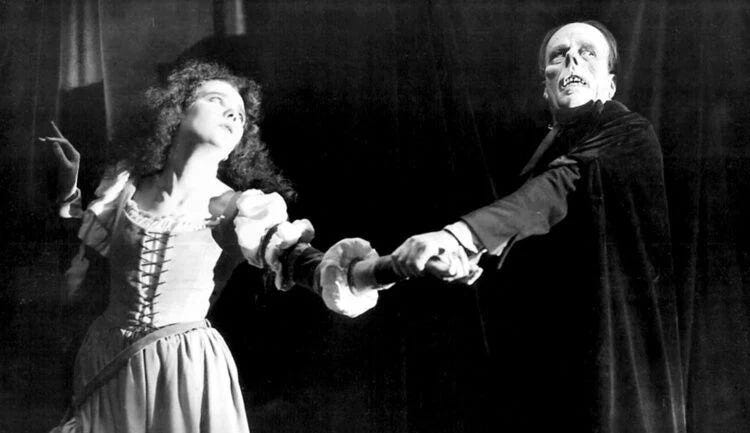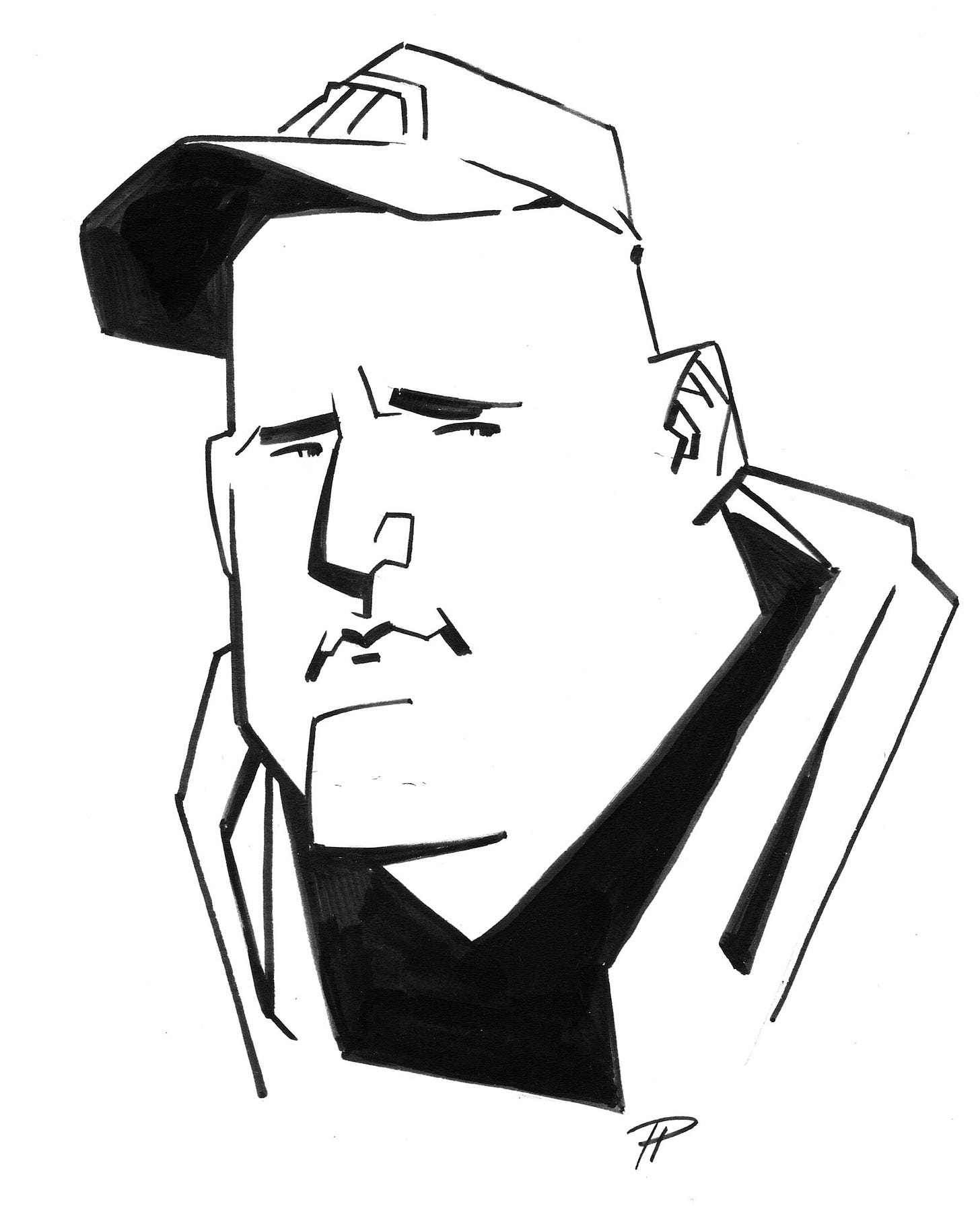Simpson music faculty revives silent movie
A new score breathes new life into 1925 silent classic 'The Phantom of the Opera'

With a title like “The Phantom of the Opera,” the film seems natural for an epic, soaring classical music score.
Alas, the adaptation of Gaston Leroux’s novel was released on Jan. 26, 1925 — in the heart of Hollywood’s silent film era.
The groundbreaking horror film played before audiences across the nation with a theater pianist or organist playing versions of generic music to pair with the drama unfolding on screen.
There was no tense, foreboding theme to mark the menacing movements of Lon Chaney’s performance as the Phantom.
No romantic suite to paired with heroine Mary Philbin’s Christine, a rising opera star torn between her love for the young noble Raoul and sympathy for the Phantom.
“Back then, very few films had specific scores,” said John Benoit, Simpson College professor of music. “Films could arrive on Wednesday and be gone on Thursday. The musicians didn’t have time to learn the music.”
Instead, the house organist paired music they had already knew such as “Silent Sorrows,” “Flirty-Flirts” or “Dramatic Tension.”
The early days of film focused almost exclusively on the visual aspect of the medium.
This year marks the 100th anniversary of the original “Phantom” and Benoit and the Simpson College Vivo Chamber Players are reviving the classic monster movie with a new orchestral score.
The Vivo players will screen the original film with a live performance of a score composed by Benoit at 7 p.m., Friday, Jan. 31 at Smith Chapel at Simpson College.
An encore performance is scheduled for 7 p.m., Feb. 1 at St. John’s Lutheran Church in Des Moines.
Both events are free and open to the public.
While a church backdrop may seem an odd space to play a horror film, there is a practical reason: both the chapel and the church have pipe organs.
“There are several scenes in the film where the Phantom plays the pipe organ,” Benoit said. “The organist at St. John’s bringing those scenes to life.”
The Vivo Chamber is comprised of Simpson music faculty who teach orchestral instruments along with some select friends.
Benoit began experimenting with pairing instrumental music with silent films about 5 years ago.
He wrote a score for a 20-mnute silent film. He followed that with a score for a short 1913 film by filmmaking pioneer D.W. Griffith called “The Mothering Heart.”
In 2022, Benoit and the Vivo Chamber Players played backdrop to Buster Keaton’s 1924 film “Sherlock Jr.”
Playing to “The Phantom of the Opera” is the group’s first feature length outing. The film runs about 1 hour, 16 minutes.
“Phantom” film is driven by the master performance by Lon Chaney, a star of the silent era known as the “Man of a 1,000 Faces” because of his uncanny skill to render monsters with through cosmetics.
Chaney was coming off the success of playing the title character in “The Hunchback of Notre Dame,” in which he made himself into Quasimodo by doing his own make up.
Chaney again did his own make up to render the disfigured face of the Phantom.
The reveal of the Phantom’s true face comes at a tender-but-tense moment in the film during which the Phantom plays music for Christine who is overcome by her curiosity and removes the mystery man’s mask.
Film lore says the unmasking scene caused audience members to shout and faint at the site of the Phantom’s grotesque features.
Film historians regard “The Phantom of the Opera” as breakthrough moment in gothic horror.
The success of “Phantom” led to Universal Pictures investment in a string of successful and iconic horror films in the “talkie” era, including “Dracula,” “Frankenstein,” “The Mummy,” “The Invisible Man” and “The Wolf Man.”
With Benoit’s score, the Phantom now has a theme that repeats at the unmasking and culminating chase scene in which the Phantom is hunted down by an angry mob, killed and his body tossed into the river.
The Vivo Chamber Performers will reenact a bygone era cinema and music, but there’s also something else to lure people to the show.
“You could watch this movie on-demand or on DVD, but it’s not the same experience,” Benoit said. “People used to go to the movies and experience the drama and music together. It’s a shared communal experience. That’s kind of nice.”
Daniel P. Finney is a member of the Iowa Writers Collaborative, but don’t hold that against them. Please visit their page to view a full roster of writers and consider subscribing to their columns. Writing is hard work; people ought to get paid for it. If you enjoy it, throw them a couple of bucks. They earned it.






Thank you, Daniel, for renewing my interest in The Phantom of the Opera. It is such a powerful story. This sounds like it would be a very good way to spend an evening.
This would be so cool! I enjoyed seeing Sherlock Jr. with a visiting pianist at the Varsity a couple months ago. Great film. It's playing again at Fleur soon, with an REM soundtrack. There's been some combos of old movies/new music playing at places. But I think I'd rather see this 'Phantom.'